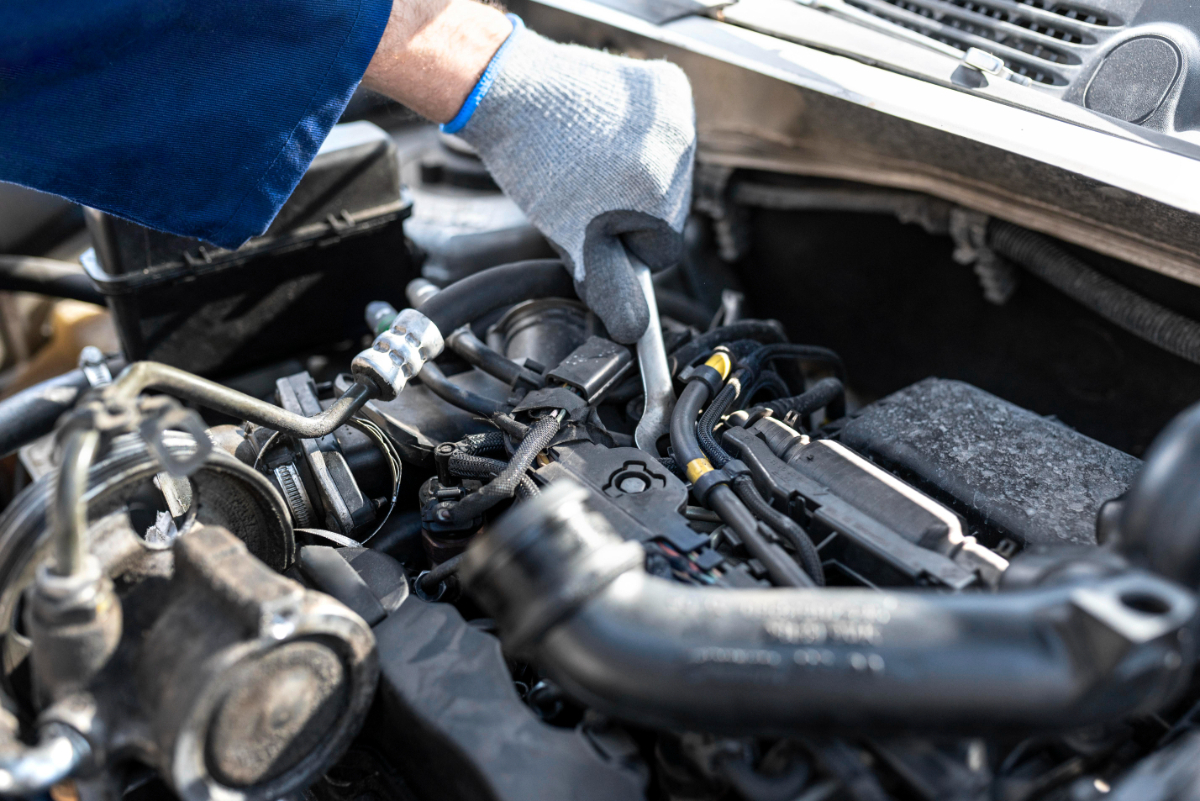Explore the top common questions about BMW repairs. Get expert answers to your most pressing questions on BMW maintenance, troubleshooting, and repair services. Discover valuable insights to keep your BMW running smoothly and efficiently.
How Can I Save On Repairing My BMW?
Repairing a BMW can sometimes be a costly endeavour, but there are several ways you can save on maintenance and repairs while ensuring your luxury vehicle remains in excellent condition.
Regular maintenance is essential for identifying and addressing issues early, preventing them from becoming more costly problems. Choosing an independent BMW specialist can often save on labour costs while still benefiting from their expertise. Consider using high-quality aftermarket parts as a more cost-effective alternative to genuine BMW parts, without compromising quality.
If you're mechanically inclined, you can perform simple maintenance tasks yourself, such as changing air filters, oil, or brake pads. However, complex repairs should be left to the professionals. Regularly checking fluid levels like engine oil, transmission fluid, and coolant and topping them up as needed can prevent damage and costly repairs.
Investing in an extended warranty or purchasing a certified pre-owned BMW with warranty coverage can save you from unexpected repair bills. Driving responsibly and avoiding aggressive driving can extend the lifespan of various BMW components.
When a repair is necessary, obtain quotes from multiple reputable service providers to find the most cost-effective solution without sacrificing quality. Consider joining BMW enthusiast clubs, which may offer discounts on parts and services and provide access to a network of experienced BMW owners who can offer advice. Staying informed about common BMW issues and recalls and addressing them proactively can save you from unexpected repair costs.

How Often Do You Need To Service A BMW?
Servicing your BMW at regular intervals is essential to ensure its optimal performance, longevity, and safety. However, the frequency of BMW servicing can vary depending on several factors, including the model, age, and driving conditions.
BMW provides a recommended service schedule in the owner's manual specific to each model. It's essential to follow this schedule diligently as it outlines the manufacturer's guidelines for maintenance intervals.
Typically, BMWs require service every 10,000 to 15,000 miles or approximately once a year, whichever comes first. This routine maintenance includes tasks like oil changes, filter replacements, and basic inspections.
BMW vehicles have specific service points known as Inspection I and Inspection II. Inspection I usually occurs every 20,000 to 30,000 miles and involves more thorough checks and fluid replacements. Inspection II, which is more comprehensive, takes place every 60,000 to 90,000 miles, depending on the model.
If you drive your BMW under severe conditions, such as frequent stop-and-go traffic, extreme temperatures, or dusty environments, you may need more frequent servicing. In such cases, it's advisable to consult with your BMW service advisor to determine the appropriate schedule. As your BMW ages, it may require more frequent servicing to address wear and tear. Regular maintenance becomes increasingly critical for older models to prevent major issues.
Newer BMW models often come equipped with advanced onboard diagnostics that can monitor your vehicle's condition and alert you when service is needed. Pay attention to these warnings and schedule servicing accordingly. If your BMW is covered by an extended warranty or service plan, it may come with its own recommended service intervals. Be sure to follow these guidelines to maintain warranty coverage.
In summary, the frequency of servicing your BMW depends on various factors, but it's generally recommended to adhere to the manufacturer's guidelines outlined in your owner's manual. Regular maintenance not only keeps your BMW running smoothly but also helps identify potential issues before they become costly repairs. Consult with a BMW service professional to tailor a maintenance plan that suits your specific vehicle and driving conditions.
Are BMWs Expensive To Repair?
BMW repairs can be more expensive than those for non-premium brands, primarily because of the car's advanced technology, high-quality materials, and specialised components. However, the cost of BMW repairs can vary widely depending on several factors. New BMWs typically come with a manufacturer's warranty that covers many repairs for a specific period. Extended warranties or certified pre-owned BMWs can further reduce out-of-pocket repair expenses.
Regular maintenance, such as timely oil changes, brake pad replacements, and fluid checks, can help prevent more costly issues down the road. Neglecting maintenance can lead to expensive repairs. BMW uses specialised parts, and genuine BMW components can be more expensive than generic alternatives. Labour costs can also vary depending on whether you choose a dealership or an independent repair shop.
BMW vehicles are equipped with advanced technology and sophisticated systems, such as iDrive infotainment and adaptive suspension. Repairing or replacing these components can be costly due to their complexity.
The age and model of your BMW play a role in repair costs. Newer BMWs typically have fewer repair needs, thanks to warranties and fewer wear-and-tear issues. Older models may incur higher maintenance costs as they require more frequent repairs and replacements. While some BMW owners choose to perform simple maintenance tasks themselves, complex repairs should be left to professional technicians to avoid costly mistakes.

Is It Hard To Repair A BMW?
Repairing a BMW can be a complex task due to the advanced technology, intricate engineering, and precision components characteristic of the brand. The difficulty of repairing a BMW depends on several factors. Specialised knowledge is required because BMWs have unique systems and components.
Mechanics with experience in BMWs and access to the appropriate diagnostic tools are better equipped for repairs. Modern BMWs come with complex technology, including sophisticated electronics, sensors, and computer systems. This technology often demands specialised training for effective diagnosis and repair.
High-quality materials used in BMWs can make repairs more challenging. Components may be tightly integrated, and some parts are designed for durability rather than ease of replacement. The availability of genuine BMW parts can affect repair time, as waiting for parts to arrive may prolong the process.
Regular maintenance and timely issue resolution can prevent major breakdowns. Proactive maintenance can save both time and money compared to addressing more significant problems. The complexity of repairs can vary depending on the BMW model.
Some models have simpler designs and fewer components, while others, especially high-performance or luxury models, maybe more intricate. While some BMW owners with mechanical expertise may tackle simple maintenance tasks themselves, complex repairs should be entrusted to professional technicians to avoid costly errors.
In summary, repairing a BMW can be challenging due to its specialised systems, advanced technology, and high-quality materials. However, with skilled technicians, the right diagnostic tools, and access to genuine BMW parts, it can be a manageable task.
Routine maintenance, preventive care, and timely issue resolution are essential for keeping a BMW in optimal condition, ultimately making repairs more feasible. Whether BMW repairs are considered difficult or not, having a reputable and experienced service provider is vital to ensure the vehicle receives the necessary care and attention.
How Long Does It Take To Fix A BMW Car?
The time it takes to fix a BMW car can vary widely depending on several factors. Minor repairs like oil changes or brake pad replacements can typically be completed within a few hours. However, major engine or transmission overhauls may take several days or even weeks, depending on the complexity of the job.
The availability of replacement parts can also affect repair time. If a specific part is out of stock or needs to be ordered, it can extend the repair time. Accurate diagnosis of the issue is crucial, and it may take some time to identify the root cause, especially if it's intermittent or complex. The expertise and experience of the technician working on your BMW can impact repair time, as more experienced technicians may be able to diagnose and fix issues more efficiently.
The choice of service provider matters too. Dealerships often have access to the latest diagnostic tools and resources, which can speed up the repair process. Regular maintenance and timely addressing of issues can prevent major breakdowns that require extensive repairs, potentially saving time and money in the long run. Newer BMW models may have more efficient repair processes due to advanced technology and improved access to parts.
At BMW Care Hayes, we pride ourselves on being your trusted local BMW specialists. If you're searching for BMW repair specialists near you, you've come to the right place. Our team of highly skilled technicians are committed to providing exceptional care for your BMW.





